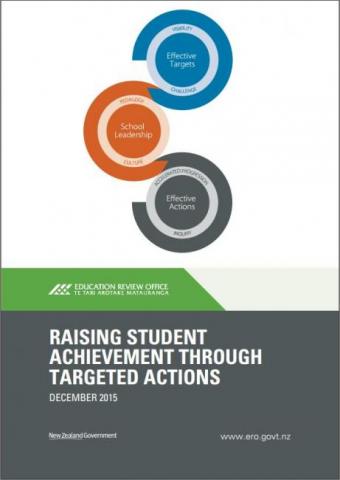Stewardship: working relationships
Published: 04 Sep 2017
At Invercargill Middle School, the way in which school trustees and leaders work together fosters an appreciative and respectful environment that acknowledges the contributions of everyone in the learning community.
- Audience:
- Education
- Parents
- Schools
- Content type:
- Research
- Topics:
- Improvement
- Stewardship
- Evaluation indicators
- Video
- Improvement in Action Te Ahu Whakamua







